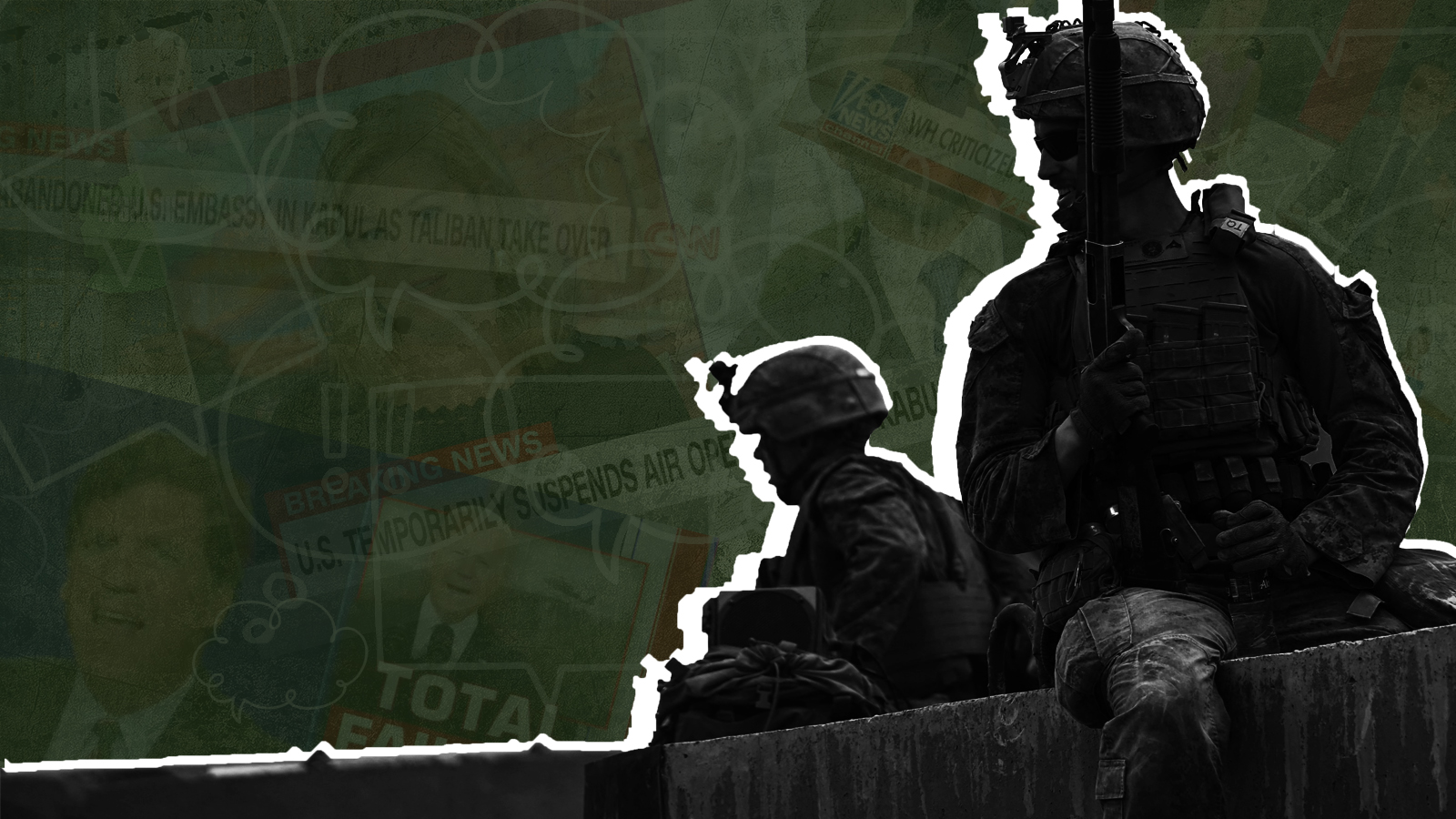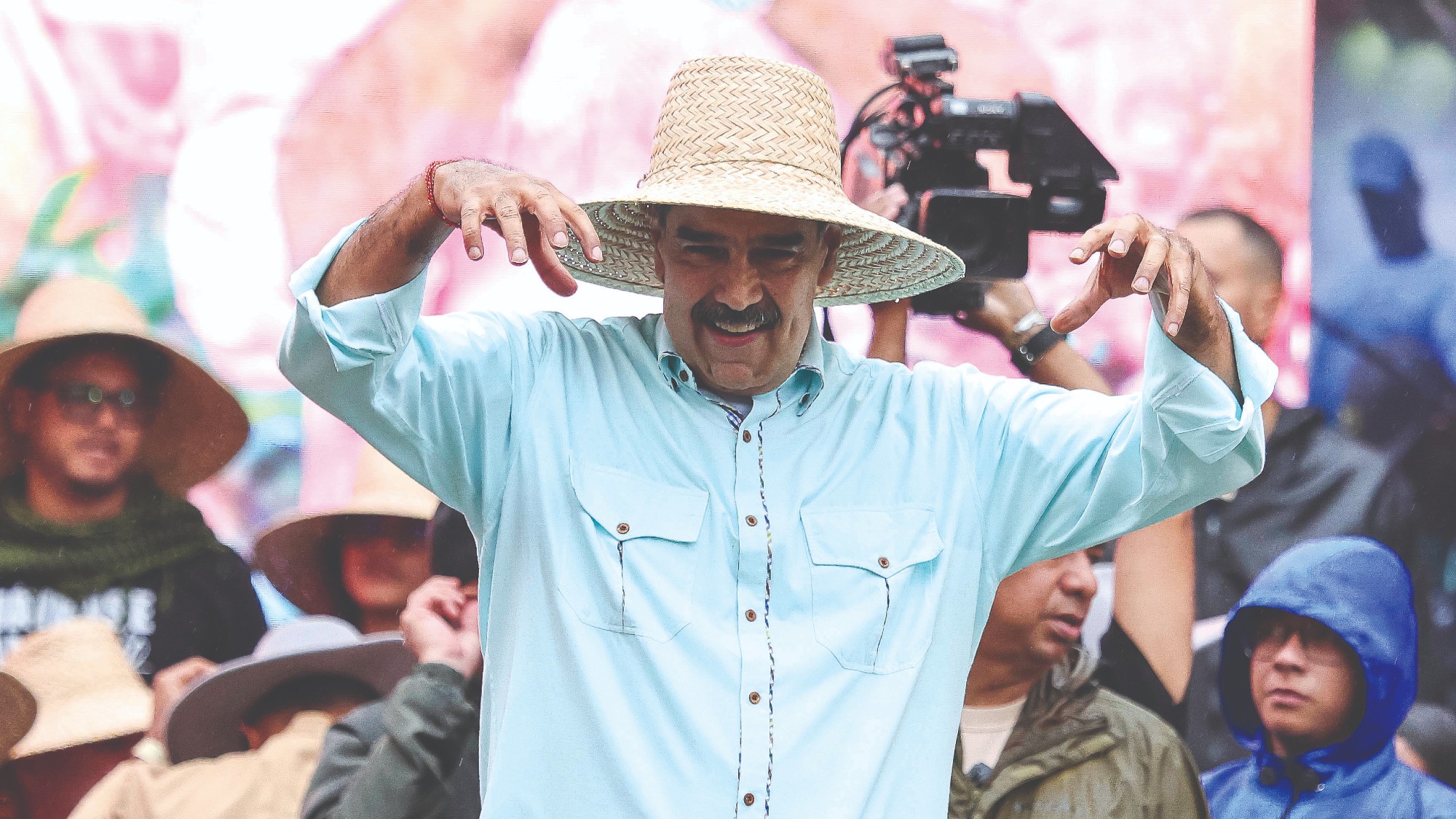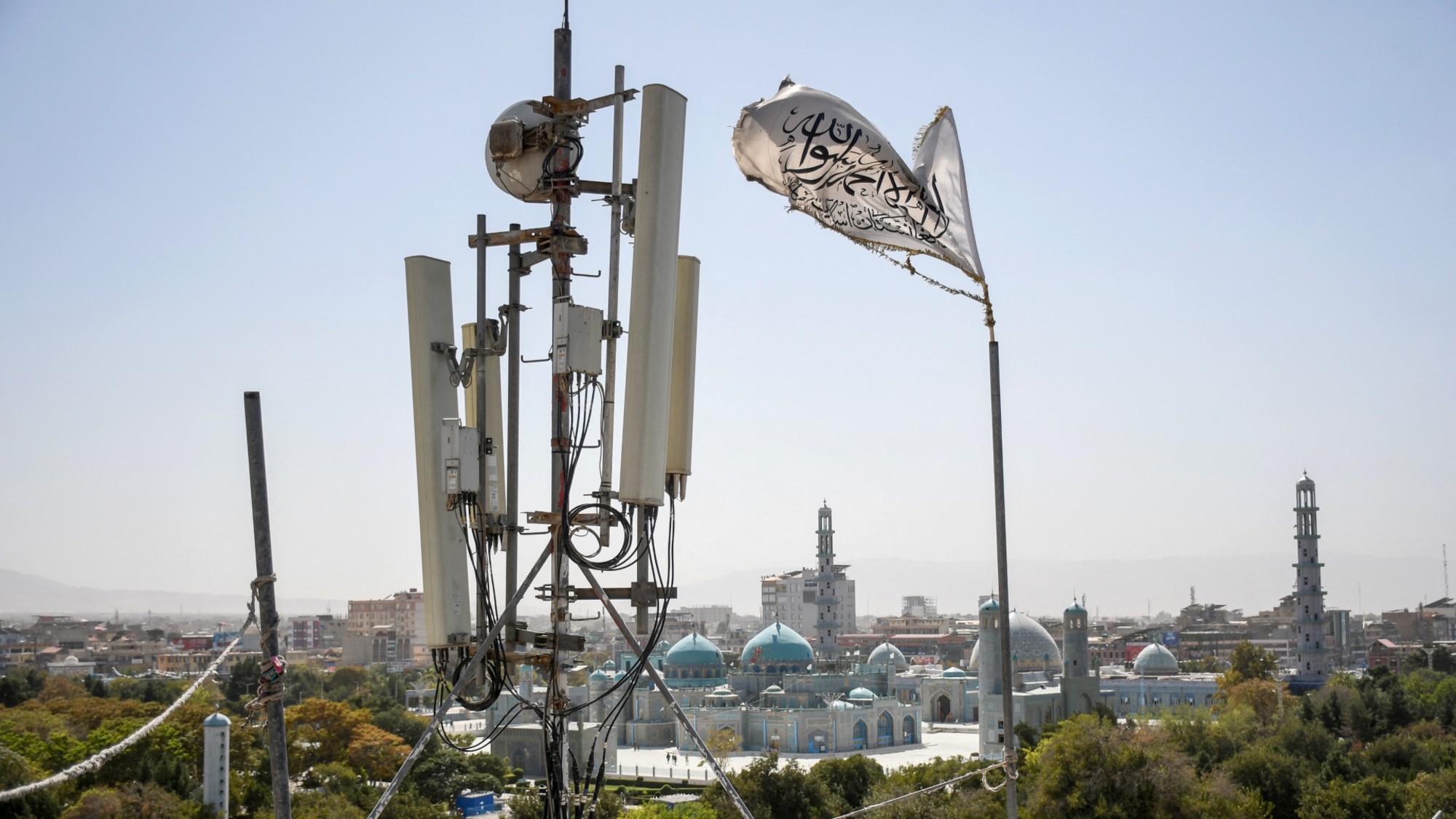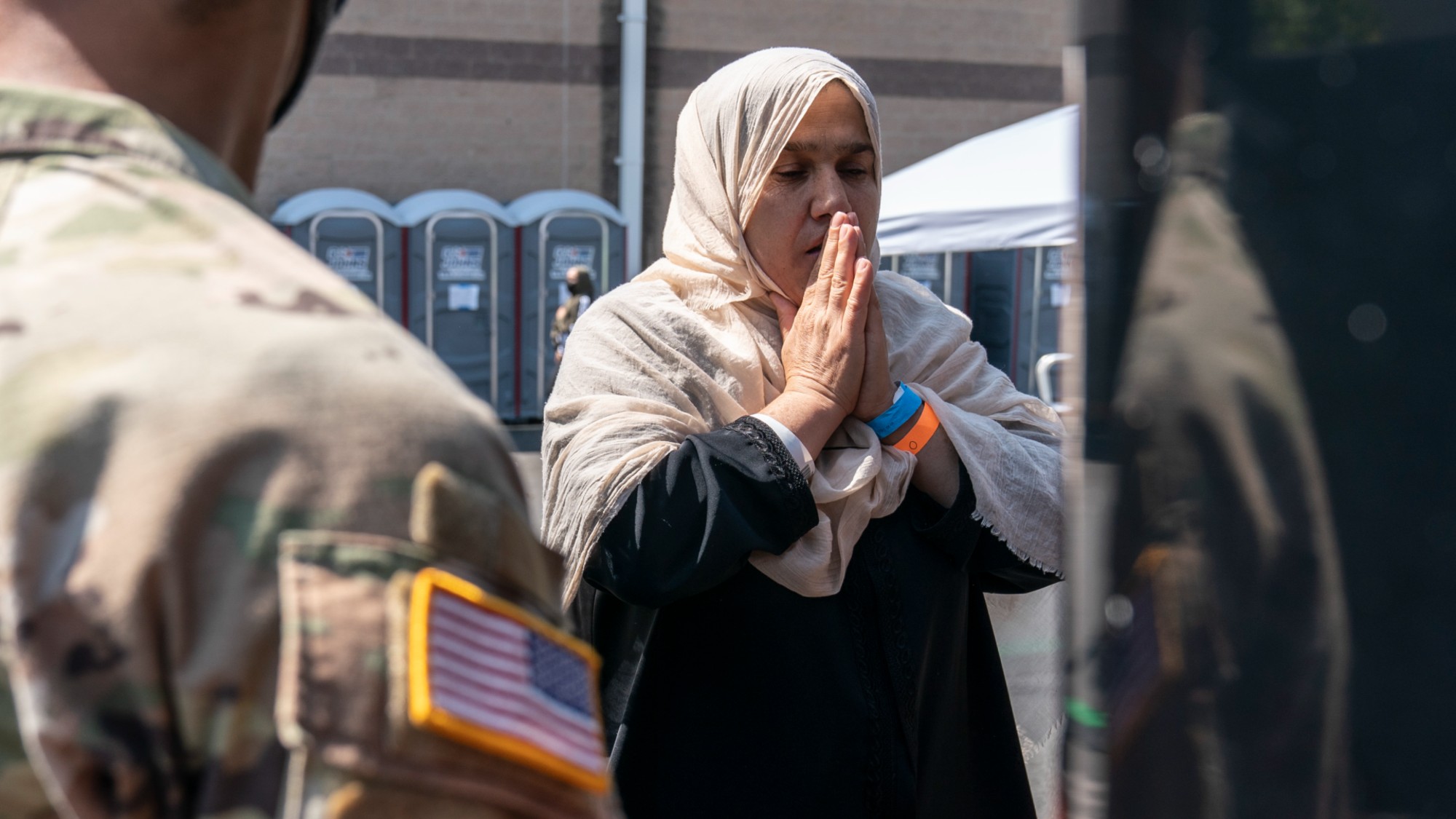American media can't quit the forever war
Respecting the troops means keeping them in Afghanistan forever, it seems


The American mainstream media is throwing a classic tantrum over President Biden's decision to withdraw from Afghanistan. We've got the hastily-assembled pieces telling the story of what happened in elaborate detail, "hard-hitting" interviews, thousands of op-eds, and cable news coverage so obsessive and breathless that even MSNBC barely interrupted Afghanistan coverage to mention that a Trump-supporting terrorist with an apparent truck bomb was threatening to blow up the Capitol building on Thursday. (Conservative white terrorists don't really count, it seems.)
At a White House press conference Friday, reporters pressed Biden with highly unusual aggressiveness. The American mainstream press, particular its television outlets, just can't quit the forever war.
As Judd Legum writes at Popular Information, big outlets have almost exclusively turned to critics of the Afghanistan withdrawal in their coverage, and in virtually every case people who supported the invasion and occupation. A public relations specialist told Popular Information that TV bookers were straight-up refusing to have anyone on who supports the decision to withdraw. Indeed, as Eric Alterman writes at The American Prospect, many people now being given a platform to hector Biden about his supposed failures were not only directly involved in the catastrophically bungled occupation but were revealed in The Washington Post's "Afghanistan Papers" to have blatantly lied to the public about how well it was going. The Post itself is not innocent either — a recent David Ignatius op-ed compared Biden's team ending a war to the infamous Vietnam-era "best and the brightest" who started one.
The Week
Escape your echo chamber. Get the facts behind the news, plus analysis from multiple perspectives.

Sign up for The Week's Free Newsletters
From our morning news briefing to a weekly Good News Newsletter, get the best of The Week delivered directly to your inbox.
From our morning news briefing to a weekly Good News Newsletter, get the best of The Week delivered directly to your inbox.
It goes without saying that until this outbreak of hysterics, the mainstream media had almost totally ignored Afghanistan for the last decade. Nobody except a handful of intemperate critics read the dozens of Special Inspector General for Afghanistan Reconstruction (SIGAR) reports showing the occupation was a cataclysmic disaster through and through. The main evening news programs on broadcast TV spent a grand total of five minutes combined on the country in 2020, and even before the pandemic barely more than that. As Jim Lobe writes at Responsible Statecraft, "the three networks devoted a total of only 362 minutes to Afghanistan in the preceding five years, or just two hours of coverage per network, or an average of only 24 minutes per network per year."
It seems the media thinks it's fine to flush trillions of dollars down the toilet and get hundreds of thousands of people killed in a spectacularly doomed occupation, so long as the brutality is relatively easy to ignore.
It's not immediately obvious what explains a bias that is this extreme and widespread. Probably a number of factors are to blame. There is typical imperial chauvinism — the belief in American exceptionalism not only in thinking it is best country on Earth, but also that it has the right and ability to meddle in other countries' affairs whenever it wants.
Then there is the fact that a large fraction of purportedly "neutral" reporters have decided to brand themselves as hysterically pro-Troop — a tendency that got much stronger after 9/11. Every Veteran's Day and Memorial Day, you see a lot of normally buttoned-down reporters posting maudlin Twitter threads or Facebook posts appreciating American soldiers for their Heroic Sacrifice. (A recurring joke in lefty Twitter is baiting these folks into retweeting pictures of non-soldiers — like Chapo Trap House co-host Felix Biederman — or war criminals.) Some reporters have gotten so deep into instinctive troop worship that they can question basic principles of democracy like civilian control of the military, seemingly without even noticing. Here's CNN's chief national security correspondent:
A free daily email with the biggest news stories of the day – and the best features from TheWeek.com
Then there is the instinctive desire to appear "neutral." Mainstream outlets were extremely uncomfortable with the fact that, during the Trump presidency, simply reporting the news meant criticizing Republicans virtually nonstop. Therefore, anytime a Democrat does something that seems even mildly objectionable, they perform shrieking outrage so as to demonstrate their nonpartisan bona fides.
Finally, there is the fact that wars are extremely profitable for a small group of elites with deep connections to the press. Much of the tens of billions of dollars in occupation money was gobbled up by corrupt defense contractors who turned in shoddy work or straight-up fleeced the taxpayer. These contractors have hired dozens of former military officers who then go on television without disclosing that they have a direct financial interest in the conflicts they invariably advocate prolonging. In 2008, David Barstow at The New York Times found dozens of instances of this; Laura Bassett at HuffPost found the same thing in 2010; the Public Accountability Initiative found the same thing again in 2013; Lee Fang at The Nation found the same thing again in 2014; Paul Farhi at The Washington Post found the same thing again in 2020; and The Intercept found the same thing yet again over the last few days. Troop worship means that corrupt former generals get to ignore fundamental journalistic ethics.
Luckily, there are some signs that the American people are more-or-less sympathetic with President Biden's argument that withdrawal was a painful necessity. Despite an entire week of foghorn blast jingoist propaganda on every channel, a recent poll still found that 62 percent of Americans think the war was not worth fighting. I suspect if Biden continues to defend his position, most voters will conclude he did what he had to do.
It's a terrible situation, and though some refugees are getting out of Afghanistan, it's not nearly enough (at least not yet, evacuations are still proceeding). Things can always be better. But ignore the media conniption fit from people with vested interests at stake or who seem to have blacked in five minutes ago. It turns out that one reason to think twice before starting a war is they often don't end well.
Ryan Cooper is a national correspondent at TheWeek.com. His work has appeared in the Washington Monthly, The New Republic, and the Washington Post.
-
 The launch of the world’s first weight-loss pill
The launch of the world’s first weight-loss pillSpeed Read Novo Nordisk and Eli Lilly have been racing to release the first GLP-1 pill
-
 Maduro’s capture: two hours that shook the world
Maduro’s capture: two hours that shook the worldTalking Point Evoking memories of the US assault on Panama in 1989, the manoeuvre is being described as the fastest regime change in history
-
 Six sensational hotels to discover in 2026
Six sensational hotels to discover in 2026The Week Recommends From a rainforest lodge to a fashionable address in Manhattan – here are six hotels that travel journalists recommend for this year
-
 The billionaires’ wealth tax: a catastrophe for California?
The billionaires’ wealth tax: a catastrophe for California?Talking Point Peter Thiel and Larry Page preparing to change state residency
-
 Bari Weiss’ ‘60 Minutes’ scandal is about more than one report
Bari Weiss’ ‘60 Minutes’ scandal is about more than one reportIN THE SPOTLIGHT By blocking an approved segment on a controversial prison holding US deportees in El Salvador, the editor-in-chief of CBS News has become the main story
-
 Has Zohran Mamdani shown the Democrats how to win again?
Has Zohran Mamdani shown the Democrats how to win again?Today’s Big Question New York City mayoral election touted as victory for left-wing populists but moderate centrist wins elsewhere present more complex path for Democratic Party
-
 Millions turn out for anti-Trump ‘No Kings’ rallies
Millions turn out for anti-Trump ‘No Kings’ ralliesSpeed Read An estimated 7 million people participated, 2 million more than at the first ‘No Kings’ protest in June
-
 ‘The Taliban delivers yet another brutal blow’
‘The Taliban delivers yet another brutal blow’Instant Opinion Opinion, comment and editorials of the day
-
 It is 'beyond time for us to seek bipartisan solutions' for Afghanistan
It is 'beyond time for us to seek bipartisan solutions' for AfghanistanInstant Opinion Opinion, comment and editorials of the day
-
 Ghislaine Maxwell: angling for a Trump pardon
Ghislaine Maxwell: angling for a Trump pardonTalking Point Convicted sex trafficker's testimony could shed new light on president's links to Jeffrey Epstein
-
 The last words and final moments of 40 presidents
The last words and final moments of 40 presidentsThe Explainer Some are eloquent quotes worthy of the holders of the highest office in the nation, and others... aren't
